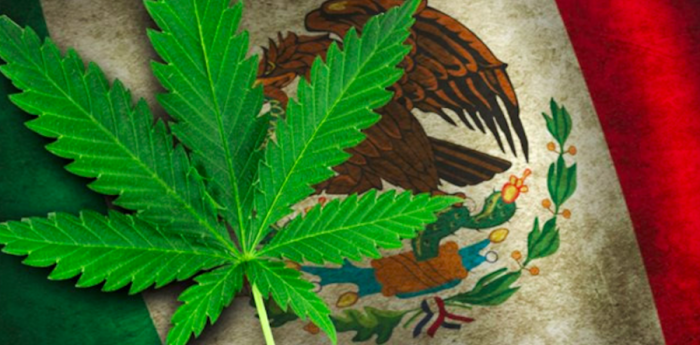Mexico takes big strides towards cannabis legalization
The move comes after the Mexican supreme court ruled the ban of recreational cannabis as “unconstitutional” late last year
Mexico is on the cusp of legalizing the possession, cultivation, consumption, and sale of cannabis after the party of the president-elect pushed for the legislation.
If the submission for cannabis legalization in Mexico is passed, the country would undergo a drastic change in terms of its drug laws.
The Mexican government banned the therapeutic plant in the early 20th century. Nonetheless, the country’s illicitly operating drug cartels have been providing the United States with a steady source of narcotics. Things are starting to change, however, what with cannabis legalization spreading across the U.S. at a rapid rate.
President-elect Andrés Manuel López Obrador’s decision to assign Senator Olga Sánchez Cordero as his interior secretary could also push Mexico in the direction of legalization. She believes that the prohibition of cannabis has amplified violence and poverty countrywide.
“Today, the nation has taken the decision to change,” she announced to Senators. “We don’t want more deaths. It will be a major contribution to bringing peace to our beloved country.”
What would cannabis legalization in Mexico entail?
Under the proposed bill for cannabis legalization in Mexico, residents would be able to cultivate a maximum of 20 plants on private property.
In addition to this, they would be legally allowed to consume cannabis in public spaces, but no more than 480 grams per year. Edibles, on the other hand, are prohibited under the proposed law for legal cannabis in Mexico.
Companies operating within Mexico’s borders would also be able to commercialize cannabis. Individuals would be allowed to possess 30 grams. These privileges will only be open to those who register with an anonymous governmental register.
Mexico’s president-elect vows to tackle the “War on Drugs”
Back in 2016, patients who required medical cannabis in Mexico were granted the opportunity to obtain their plant-based medicines, after the Mexican government began issuing permits for imports.
Certain medical patients are already in possession of permits to cultivate and grow cannabis in small amounts. Small quantities have also been decriminalized.
Since López Obrador took office on the first day of December, he has been working hard to overcome drug use and trafficking in Mexico.
Obrador has put forward a negotiation that would allow Mexican drug trade workers to be amnestied and permitted to rejoin civilian life. In addition to this, he prepared a 26-page bill that anchors in on the topic of Mexico’s drug war.
The bill, which was published on the official Congress website, claims that 235,000 people have lost their lives during Mexico’s 12-year battle with the illegal trade.
“The policy of prohibition arises from the false assumption that the problem of drugs should be tackled from a penal focus,” said Sánchez, adding that “the objective can’t be to eradicate the consumption of a substance that’s as prevalent as cannabis.”
The move comes after the Mexican supreme court ruled the ban of recreational cannabis as “unconstitutional” late last year.









